As the number of believers falls and science shapes daily life, does faith still matter? At King’s College London, speakers from four major religions discuss how belief adapts, offering meaning, ethics, and community in a rapidly changing world. A conversation that proves religion is far from irrelevant.
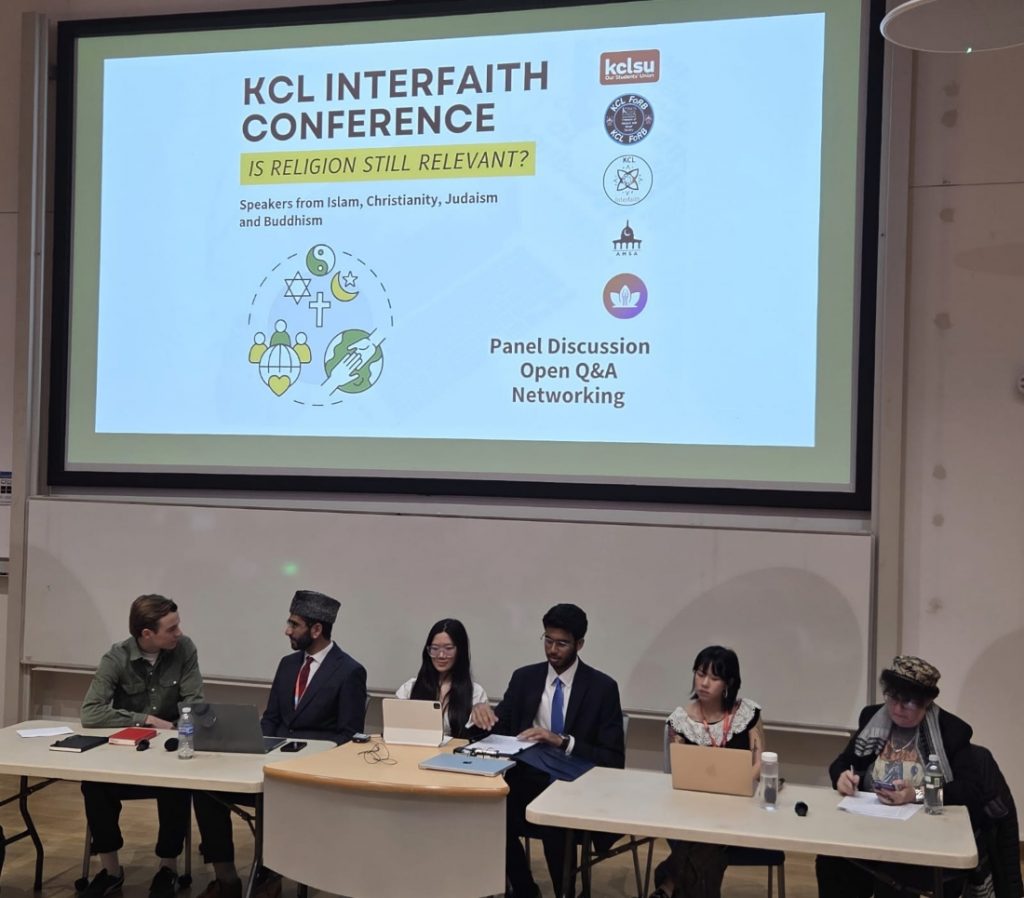
Image taken by AMSA, who organised the event
Musa Sattar, London, UK
‘You can judge this in those rationalistic scientific societies,’ Rabbi Dr Harrie Cedar a Jewish Chaplain at King’s tells the crowd, her voice steady but certain. ‘I used to be a scientist so I kind of live in that world.’
It’s a cold October night at King’s College London. In a packed lecture theatre, students type notes beside professors in tweed coats, the old and new generations of academia converging over shared curiosity. The evening’s subject isn’t artificial intelligence, gene editing or geopolitics. It’s something older, more elusive and arguably more fundamental: religion.
The discussion, titled Is Religion Still Relevant? gathers four speakers from Islam, Christianity, Judaism and Buddhism for an interfaith dialogue at one of Britain’s most secular universities. The event is organised by the Ahmadiyya Muslim Student Association (AMSA) UK, to spark meaningful conversation around faith in modern society.
In a city more defined by data and diversity than dogma, the very act of holding such a conversation feels almost radical.
The Numbers and the Narrative
According to a 2023 study by the King’s College London Policy Institute, only 49 per cent of Britons say they believe in God, a dramatic fall from 75 per cent in 1981. The same report, Belief, faith and religion: shifting attitudes in the UK, found that Britain is among the least religious nations in the world. Yet across the Atlantic, the story is more complex. Pew Research (2025) found that in the US the percentage of adults identifying as Christian has fallen to some 62 % and the rise of the religiously unaffiliated has plateaued for the first time in decades.
Yet statistics tell only part of the story. Faith may be losing institutional dominance, but it is not vanishing. In the lecture theatre, it is tangible in the attentive eyes of the audience, in the hesitations and nods during the discussion, in the quiet recognition that belief continues to grapple with life’s biggest questions.
A Voice for Peace in an Age of Upheaval
When Hazeem Arif Imam, a young Ahmadi Muslim scholar, speaks, there’s a quiet shift in the room. His voice is calm but deliberate, his words like measured steps across difficult terrain.
‘The short answer to whether religion is still relevant today,’ he begins, ‘is a resounding yes. It has never been more relevant. When our world teeters on the edge of global conflict, nuclear war and moral decay, humanity needs a faith that offers a path towards peace and higher moral conduct.’
He quotes from the Qur’an call to compassion and justice: ‘uphold justice even if it be against yourselves’ and explains how Islamic teaching demands compassion, charity and restraint. ‘These are not relics of the past. They are the blueprint for peace.’
‘The Holy Prophet Muhammad, may peace and blessing of God be upon him’ he says, ‘forgave every soul responsible for years of persecution in Makkah. He transformed the people that were steeped in moral decay, bloodshed and barbarism, into individuals of remarkable virtues.’
Pausing, he adds softly, ‘Islam reforms the individual and that creates a sure, safe way of establishing peace in society.’
There is something quietly arresting in his certainty. ‘Despite our advances in science and technology,’ he says, ‘mankind will forever be in need of guidance and moral direction. Without that, speed becomes recklessness. We may know how to build but not how to behave.
A student near the back nods slowly, scribbling in the margin of her notebook: ‘morality before machinery.’
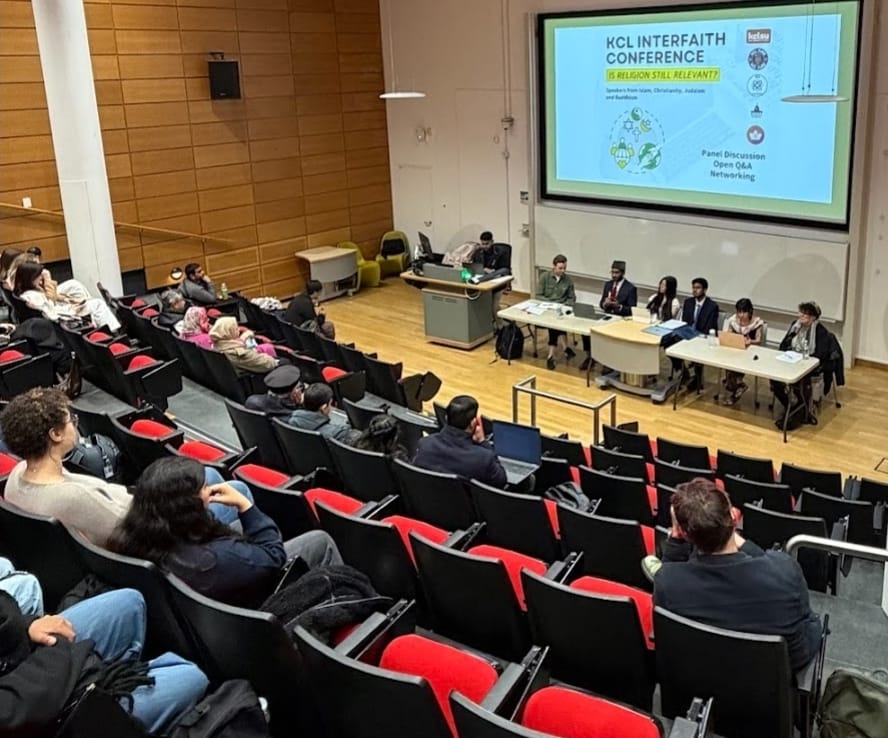
Image taken by AMSA
The Sparks of Holiness
Rabbi Dr Cedar follows, her tone lyrical but firm. ‘We think everything on this planet is divine sparks,’ she says. ‘And our job is to elevate those sparks into holiness. We’re not waiting for a reward in heaven this life is the reward.’
She once worked as a scientist, she tells the audience, and found that science could explain matter, but not meaning. ‘People are feeling very lost on the internet, on their own,’ she adds. ‘Religion, belief, community they give us something to belong to, something that matters.’
Her words cut through the hum of the city outside. ‘Science tells us how. Religion asks why.’
Mindfulness and Modernity
Representing Buddhism, Jess, President of the King’s Buddhist Society, holds the microphone with a quiet confidence. ‘Buddhism doesn’t have a single authority or central text,’ she explains. ‘It’s a path, not a dogma.’
She outlines the Four Noble Truths that suffering exists; that its cause is attachment; that it can end; and that the Eightfold Path leads to that end. ‘Right speech, right action, right mindfulness these are not ancient abstractions,’ she says. ‘They are tools we use every day.’
She notes that Buddhist meditation has already been woven into modern life through mindfulness-based therapy and stress reduction programmes in schools, workplaces, even hospitals. Then, with quiet pride, she adds, ‘Religion adapts; it doesn’t disappear.’
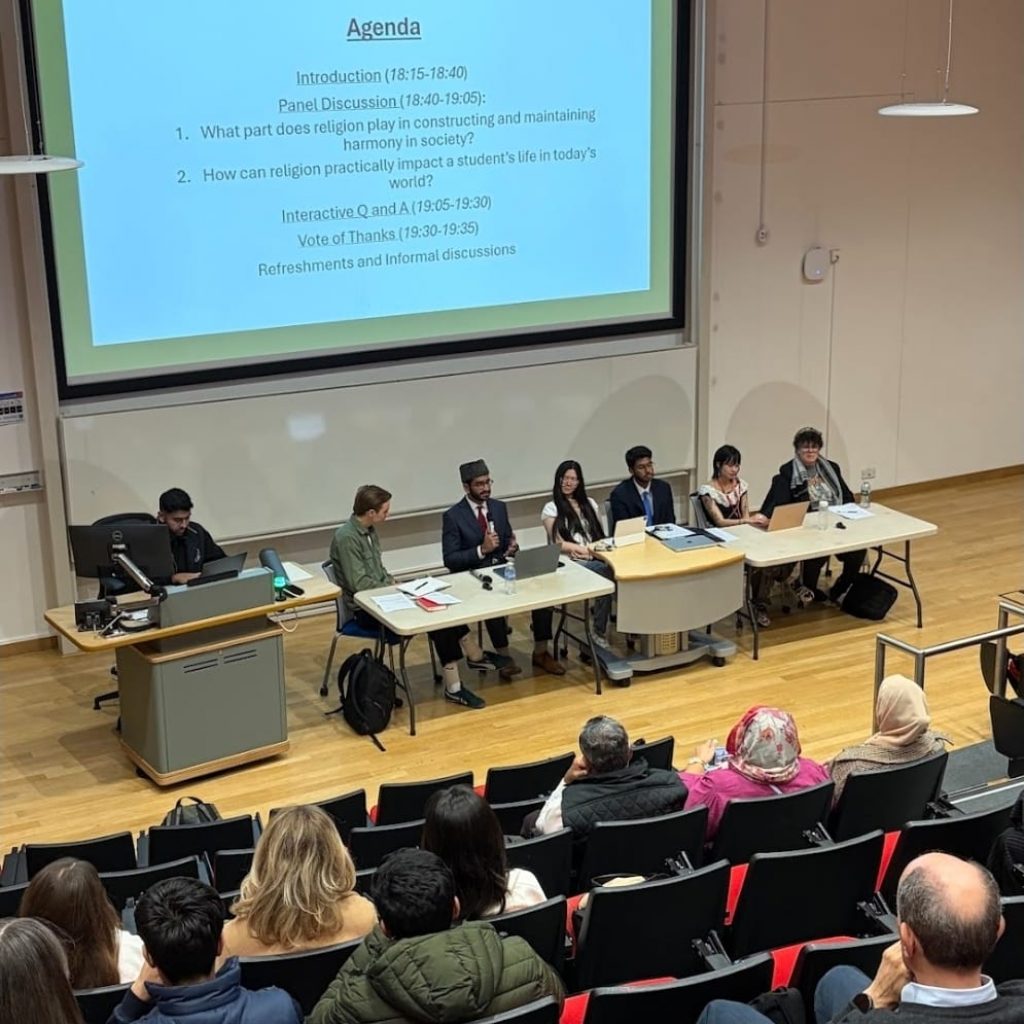
Image taken by AMSA
Compassion Before Certainty
‘People often think Christianity is about certainty,’ Asher Higham, from the Christian Union Society, a theology student with a disarming openness, begins, ‘but I think it’s more about compassion.’
‘Science gives us knowledge,’ he smiles ironically. ‘We’ve built machines that can think faster than we can, but we still struggle to live kindly. Jesus spoke about loving your neighbour not when it’s convenient, not when it agrees with your worldview, but because they are human. That’s what a modern society still needs.’
Asher admits that living faithfully isn’t easy in a sceptical world. ‘Doubt,’ he says, ‘isn’t the enemy of faith. Indifference is.’
It’s a simple, resonant point, one that even the non-religious in the audience seem to nod at.
Faith and Science: Rivals or Partners?
If modernity is defined by science, reason and progress, many once believed religion would dissolve. Yet research from Durham University challenges this narrative: religious belief has not vanished under the glare of the lab. A study found scientists and theologians increasingly ask the same question: ‘What does it mean to be human?’ Some recent research even shows fewer people believe religion and science are in conflict than we tend to imagine.
In a British context, only 4 % of the public say religious authorities should define laws in a democracy showing religion’s institutional power may have waned. The question is not whether faith is dying, but how it is reshaping.
That paradox feels almost embodied in King’s College itself. A university founded on Christian ideals, now a hub of secular learning, hosting an interfaith dialogue about the search for meaning. One that science cannot fully quantify.
During the Q&A, a student asks whether religion still has a role in building peace. Hazeem responds gently but firmly: ‘Islam accepts all faiths as divine in origin. A true Muslim is one from whose tongue and hand all peaceful people are safe. If we lived by that as individuals, governments, nations, the world would look very different.’
His words draw murmurs of assent. Across the theatre, even the sceptics seem contemplative.
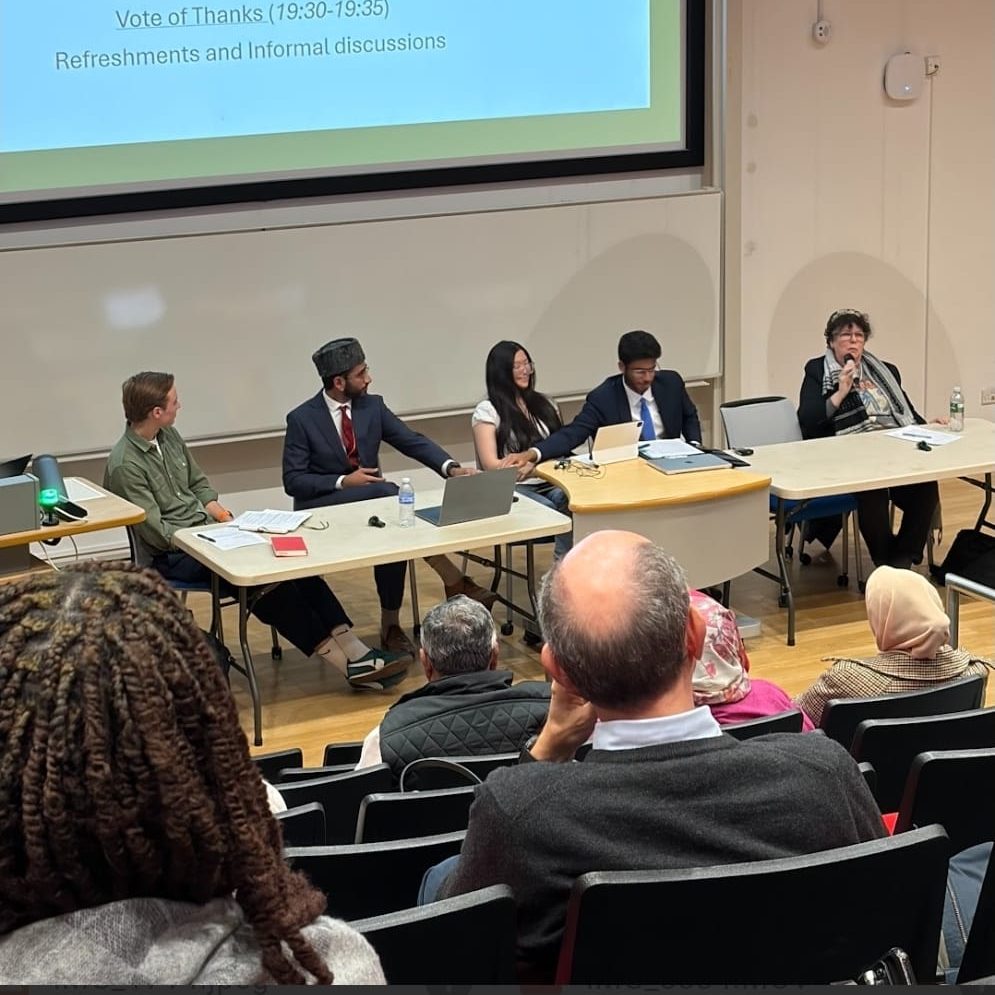
Image taken by AMSA
The Threads That Bind
As the evening ends, the rain picks up, Guy’s Campus gleams under the streetlights, the Shard towering overhead like a beacon in the mist. People linger, discussing, debating, exchanging contacts. For a moment, it feels like a congregation, though no sermon was preached.
Perhaps that’s the point. Religion isn’t about retreating into the past, but about remembering that questions of meaning, justice, and purpose never go out of date.
The lecture theatre at King’s wasn’t filled with revivalists but with seekers. And in the age of machine intelligence and global complexity, perhaps that’s what we still need: humans who ask the big questions as well as build the next algorithm.
In today’s Britain, where fewer than one in two believe in God and self-declared ‘nones’ rise, inter-faith moments like this matter. They remind us that faith’s relevance isn’t counted in pews or rituals, but in its power to welcome, to listen, and to provoke thoughtful dialogue.
As attendees gather around the coffee urn and leftover biscuits, I speak with a philosophy student. She smiles and says, ‘I’m not religious, but I came to understand why people still are. Maybe that’s faith too, just asking the questions.’
In a century obsessed with answers, that might be the most sacred act of all.
About the Author: Musa Sattar has an MSc in Pharmaceutical Analysis from Kingston University and is also serving as the Assistant Manager of The Review of Religions and the Deputy Editor of the Science & Religion section.

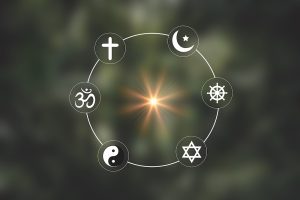
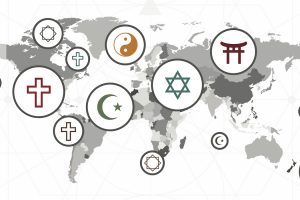
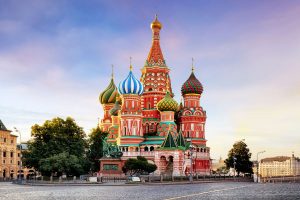
Add Comment